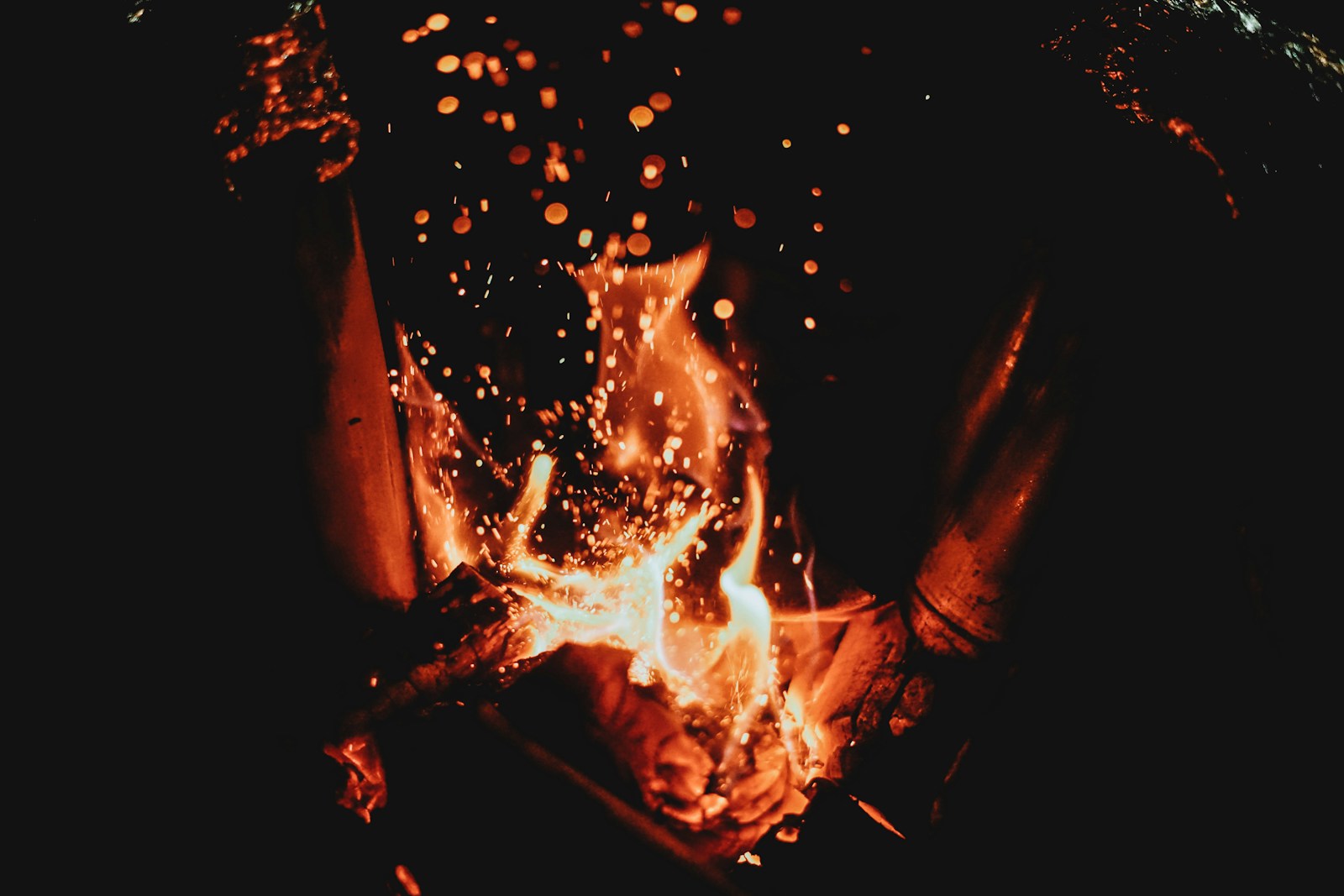
燃烧
ránshāo

burn
The Chinese word '燃烧' is used similarly as the English word 'burn.' It can be used to describe the physical burning of materials, such as '燃烧木头' ('burning wood'). But it can also be used metaphorically as in '燃烧的激情' ('burning passion').
Example sentences using: 燃烧
我看见树木在燃烧。
Wǒ kànjiàn shùmù zài ránshāo.

I see the trees burning.
This sentence expresses an action the speaker sees, in this case, the trees are burning.
燃烧我的卡洛里。
Ránshāo wǒ de kǎ luò lǐ.

Burn my calories.
People mainly use this sentence metaphorically referring to exercise or any form of physical activity.
他的眼睛像燃烧的煤炭。
Tā de yǎnjing xiàng ránshāo de méitàn.

His eyes are like burning coal.
This sentence is a metaphor, comparing someone's eyes to burning coal, possibly indicating intensity or color.
燃烧脂肪,得到能量。
Ránshāo zhīfáng, dédào néngliàng.

Burn fat, get energy.
This phrase is often associated with exercise or diet, where burning fat corresponds to gaining energy.
我们的愿望如同燃烧的火。
Wǒmen de yuànwàng rútóng ránshāo de huǒ.

Our desire is like a burning fire.
This is a metaphorical expression saying that our desire is as intense as a burning fire.
禁止燃烧一切物品。
Jìnzhǐ ránshāo yīqiè wùpǐn.

Burning of all items is prohibited.
This sentence is a rule, prohibition or command against burning any items.
燃烧的火焰照亮了黑暗。
Ránshāo de huǒyàn zhào liàng le hēi'àn.

The burning flames light up the darkness.
This sentence describes how the light from burning flames illuminates the dark.
燃烧热情像火焰一样高。
Ránshāo rèqíng xiàng huǒyàn yīyàng gāo.

The burning passion is as high as flames.
This phrase is a metaphor indicating that someone's passion or enthusiasm is as high or intense as flames.
燃烧的烛光发出微弱的光芒。
Ránshāo de zhúguāng fāchū wēiruò de guāngmáng.

The burning candlelight emits a faint glow.
This sentence describes the dim light emitted by a burning candle.
燃烧的感觉让我知道我活着。
Ránshāo de gǎnjué ràng wǒ zhīdào wǒ huózhe.

The feeling of burning lets me know I'm alive.
This is a figurative expression indicating intense feelings associated with living or experiencing life.